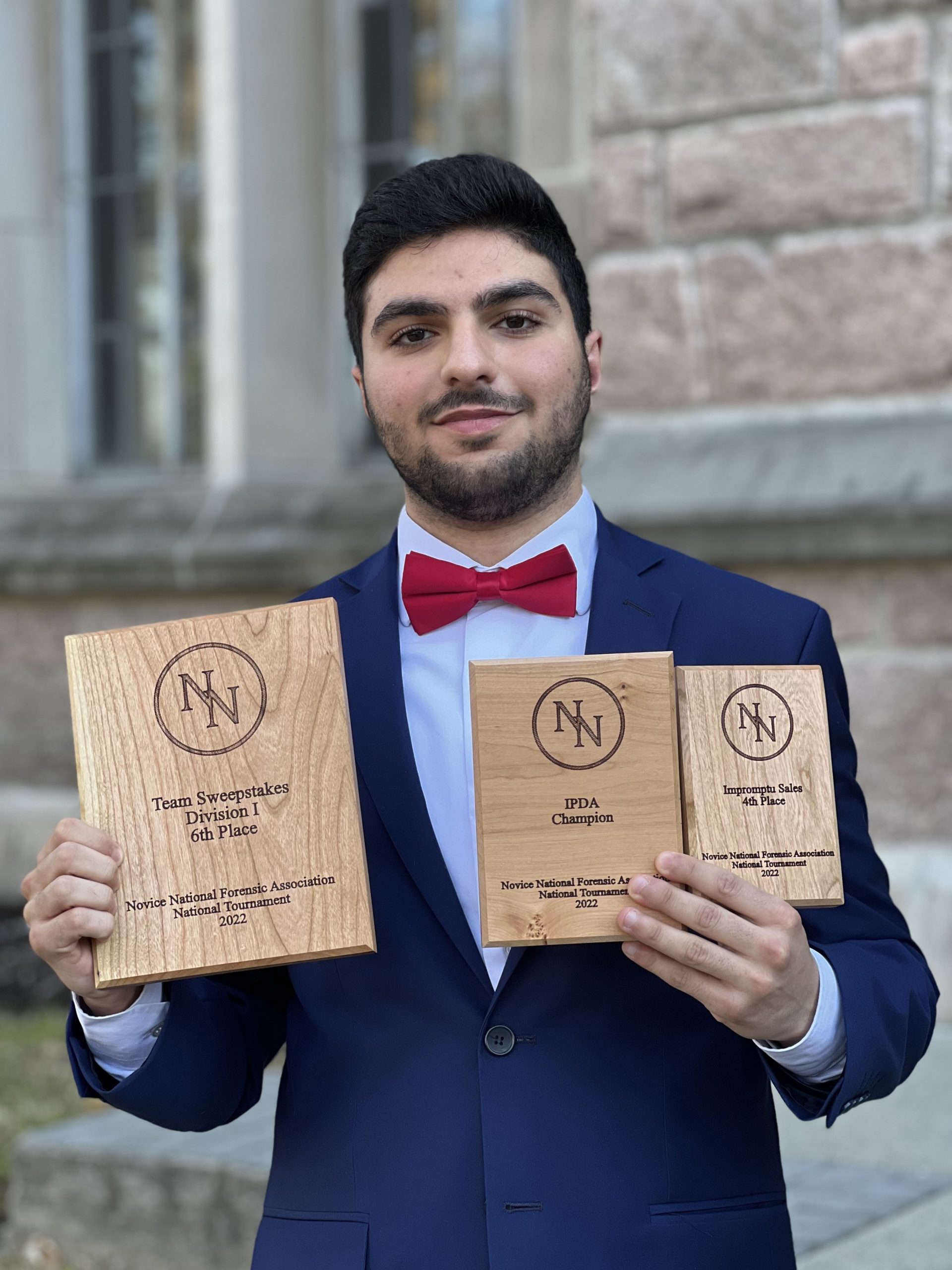How many tournaments had Charbel Harb ’25 (Human Biology) competed in before becoming a national debate champion?
Three or four.
But these tournaments were mostly open divisions, meaning that Charbel competed not only against fellow freshmen, but competitors of all academic levels. While these matchups may sound daunting to others, Charbel took advantage of the opportunity and learned from his experience.
“Open division, you can get people from any year. So I got seniors, juniors, all over the place competing against me, which is what I think made me progress faster than just competing against novice people.”
That progress propelled him to earn the title of Tournament Champion for the International Public Debate Association (IPDA) style Debate at the 2022 Novice National Championship.
“For finals, I was competing against someone I’ve debated two times before. I’ve lost against them two times before. I was like, ‘third time’s a charm.’ So it was a charm. We had a very good debate. My final topic was, ‘Yes, the federal government should invest in more wide scale cancer research.’ I was on [the For position]. It was a very, very fascinating final.”
When he’s not winning national championships, Charbel stays busy with his studies. With a major in human biology with a concentration in pre-med and two minors, business and French, Charbel plans to attend medical school after graduation and become a doctor.
“I’ve been interested in medicine for a very long time. I love it. I love interacting with people and just seeing the progress people make after they leave [treatment]. That’s my big motivation.”
Originally from Lebanon, Charbel lives with his uncle, who also happens to be a doctor named Charbel Harb and is a UIndy alum.
“He has always supported me. He’s like, ‘wherever you feel more comfortable, wherever you feel you would thrive more, and be able to settle better and do well. That’s where you should go.’ And I chose [UIndy].”
To Charbel, thriving meant finding a university that would work with him on a personal level to help him achieve his goals, not treat him like a number.
“I was accepted to several universities but I chose to come to UIndy because it is smaller so you would be able to find and get to know other people easier, like in your departments. Your advisor would know you on a more personal level than just check your number out of 4,000 biology students. And that makes it easier for you to feel more comfortable settling [into campus].”
Being able to get to know professors on a more personal level also helped Charbel overcome one of the biggest challenges of being an international student: understanding and speaking a new language.
“The first week maybe you get to the speed of the teachers – if you’re not used to hearing English so fast and then you’re hearing English all over the place. Now it’s great. I’m doing very well. I think I’ve settled. I’m doing better than I was seven months ago.”
Now that he’s added English to his repertoire, Charbel speaks a total of five languages – French, Arabic, Lebanese, Egyptian, and a bit of Armenian. Sometimes he finds himself switching languages mid-speech, but Dr. Stephanie Wideman, Assistant Professor and Director of the Forensic Speech and Debate Team, encourages him to embrace it.
“Dr. Wideman has supported me a lot even when, in the middle of my speech, I would just start speaking English, then French or any other language. She’d be like, ‘yeah, go for it, do it.’ She was never like, ‘no, you should get better at your English.’ She said, ‘judges love foreign languages’ and it’s true. In my impromptu speeches I use a lot of French, a lot of fun facts about other nations. Dr. Wideman is the one who always pushes my international side into my speeches and debates.”
To pull from a timeless adage, teamwork makes the dream of becoming a national novice debate champion work.
Dr. Wideman said: “Charbel contacted me in the fall of 2021 with very specific goals. He wanted to engage in competitive debate to help him learn about American culture and improve his overall communication skills. His tenacity and hard work fueled his success in debate as well as a student at the University of Indianapolis. Although Charbel is a legacy at the university through his uncle, he is charting his own path to success and I am so excited to see where this takes him!”
So what is next for Charbel? With three years to go until graduation, Charbel’s future with UIndy is filled with potential. One goal he has in mind: “Maybe being captain of the debate team.”

